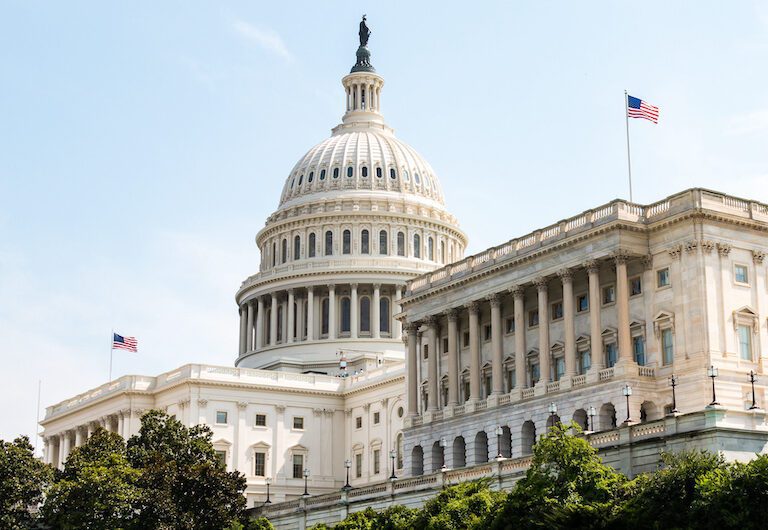A quirky feature of the American political system is that the amount of debt that the U.S. Treasury is allowed to issue is capped by Congress (currently) at $31.4 trillion, a number known as the debt ceiling. Since the amount of U.S. debt now roughly equals the debt ceiling, and because our government operates with a budget deficit, to fund ongoing operations—things like paying back existing debts, or paying government contractors and employees, or sending out Social Security checks—Congress needs to either raise or suspend the debt ceiling. It all sounds perfectly innocuous and wonky, but because the debt ceiling debate allows folks in Washington to advance party agendas, things sometimes get a bit out of hand. And that is what happened this time around.
Rather than doing what is obviously good for the country, the president and the Republican leadership in Congress engaged in a game of brinkmanship by, in effect, threatening to default on some (unspecified) set of U.S. government obligations unless one side gave in to the other’s political demands. After weeks of back and forth—with the commensurate, and often highly exaggerated, media forecasts of impending economic collapse should the debt ceiling not be raised by early June when the Treasury runs out of other funding sources—sanity finally prevailed with the House and Senate this week handily approving a bill that suspended the debt ceiling in return for cuts in federal spending.
Despite media prognostication, markets remained largely nonplussed with this week’s S&P 500 rally as much due to strong economic data and excitement about AI, as to relief about a resolution to the debt ceiling debate. Given the relative brevity of this episode, there have been no obvious short-term economic impacts either.
No Harm, No Foul?
The most lasting and damaging impact from the latest debt ceiling debacle is a slow erosion of confidence in the U.S. as a great place to do business. Because the dollar is the world’s reserve currency, the U.S. enjoys what economists call “exorbitant privilege,” which allows us to borrow voluminous amounts of money from the rest of the world at extremely attractive rates of interest. This state of affairs requires complete investor confidence that the U.S. is an attractive destination for their capital and that lending money to the U.S. government is one of the safest investments in the world.
The last time the U.S. was pushed to the brink of a potential default due to the debt ceiling debate, S&P, one of the major rating agencies, cut our credit rating from AAA to AA+. This time around, Fitch, another of the major rating agencies, put its U.S. AAA rating on watch negative, meaning it may decide to downgrade the U.S. The games played in Washington have far reaching consequences for how the rest of the world perceives us. Unless we get our act together and implement a system that allows for a rational debate on government spending without the threat of a default on our government’s obligations, the patience of ratings agencies and of investors will grow thin. The consequences of that will be far reaching. Let’s hope we don’t find out what they are.

